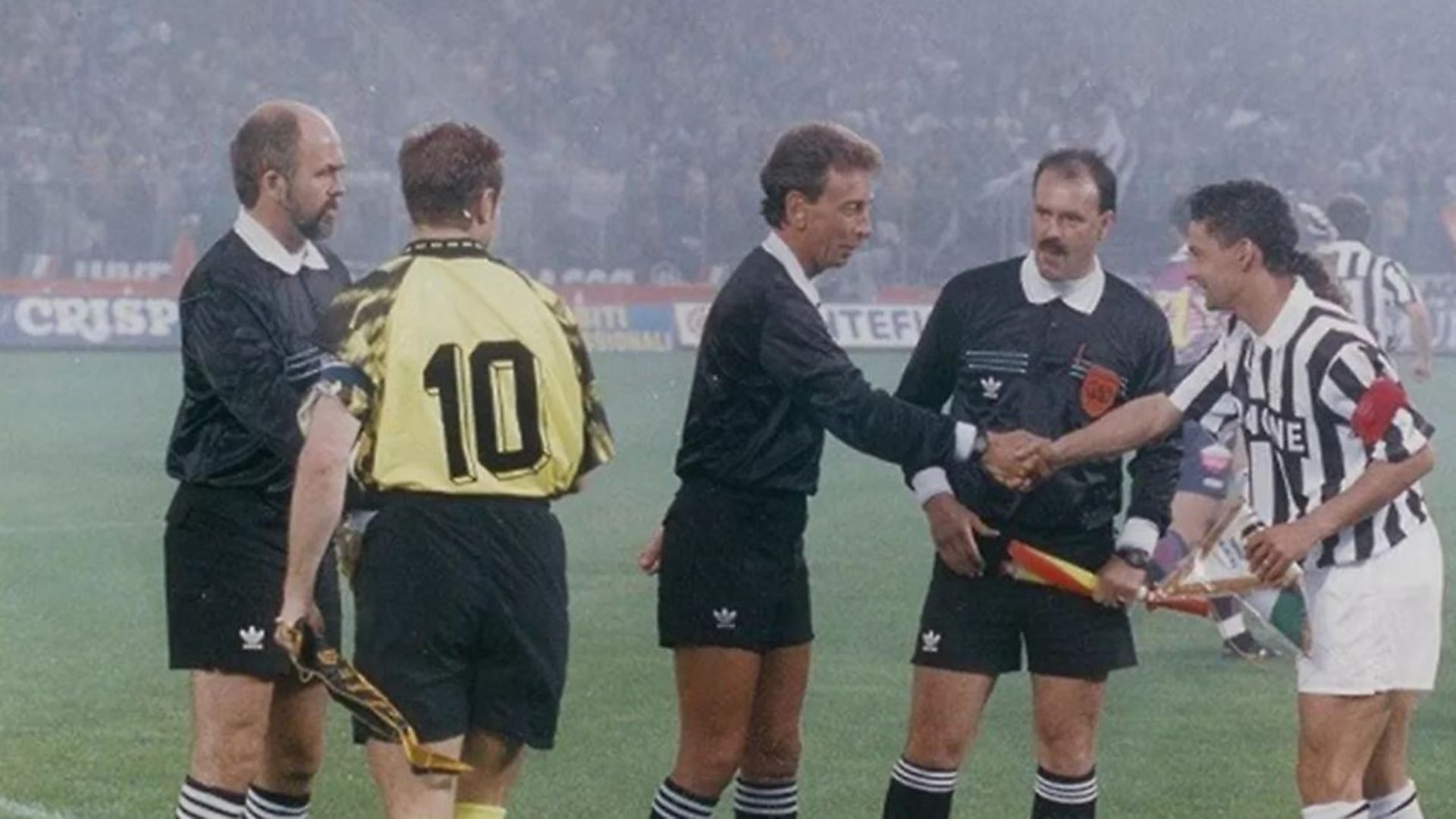
John Blankenstein was back-page news when he took charge of England’s first match at the 1992 Euros – but it wasn’t his refereeing the newspapers were interested in…
When England faced Denmark in their opening match of the 1992 Euros, many tabloid-reading fans knew as much about the referee as they did about the Danes. That was thanks to the hysteria that had greeted the appointment of John Blankenstein as match official.
At a time when the sexuality of those in public life was an ugly obsession on the seamier side of Fleet Street – with The Sun fulminating about “pulpit poofs” and running the headline “I’d shoot my son if he had AIDS”, while the Mail On Sunday was dubbing HIV the “gay virus plague” – the respected Dutchman became back page news. The Daily Mirror headline was “Gay Ref for England” and the story was claimed as a world exclusive, no less.
In fact, Blankenstein had already refereed two previous England matches without any fanfare – a friendly against Cameroon at Wembley in 1991 and a World Cup qualifier versus Albania in 1989 – and his sexual orientation was hardly a secret.
He once told German sports magazine Rund, “When I was new to professional football, I was asked in interviews if I was married. I answered quite frankly: ‘No, I’m gay’; it was already public. I had nothing more to hide and that felt good.”
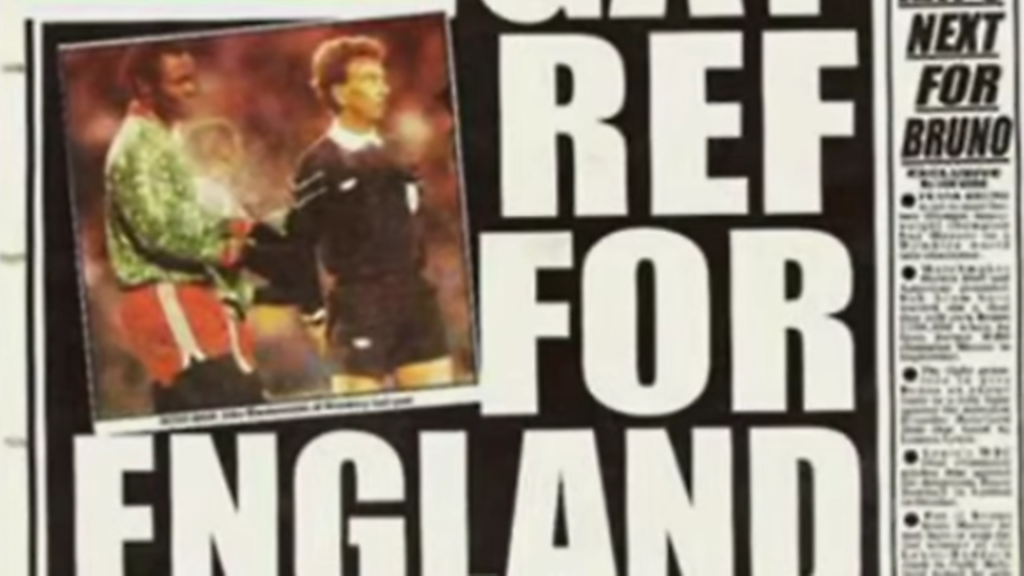
By the time of Euro 92, Blankenstein was recognised as one of football’s best referees. But being gay was considered fair game. Or, as he put it, “Because unknown often makes unloved.”
Later in life, Blankenstein would make speeches in which he would brandish another English tabloid page from the morning of the Denmark game. The headline on that one read, “Tonight’s Referee Is Gay”. The man it was written about would then deadpan: “Actually, that’s not entirely wrong.” By then he’d become a seasoned pro in how to deal with homophobia.
On the pitch, England v Denmark was a moribund, goalless affair that set the tone for the Three Lions’ tame exit from the tournament. But it was a milestone for the man in black.
He also went on to referee the 1993 UEFA Cup final between Juventus and Borussia Dortmund, along with countless international contests, including the last match played by a team from East Germany.
Equally, if not more significant, were the matches Blankenstein missed. He should have been at the 1990 World Cup in Italy. The reason for being overlooked, he said, was the allegation of being spotted wearing a FIFA blazer at a gay bar during a youth tournament in Canada three years earlier.
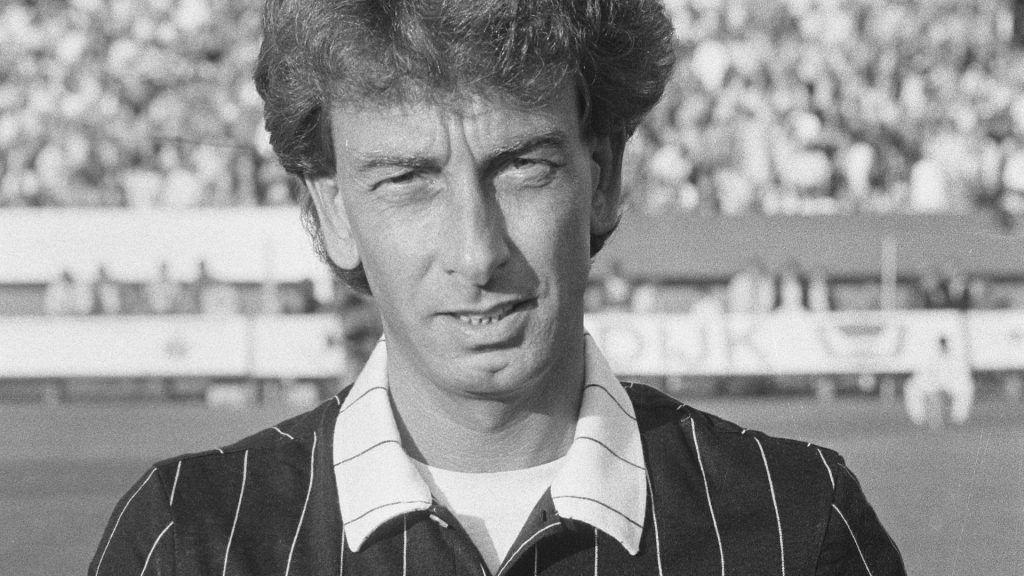
Blankenstein flatly denied the story and, again, he came back with a suitable retort: “I am not interested in bars, and even if I went there I would not wear a FIFA suit. It is hardly a turn-on.”
He asked FIFA to reveal the identity of his accuser who, he pointed out, must surely have also been in the same bar. There was no reply.
Then there was the time when a female prostitute was sent to his hotel room, with a bottle of champagne and a smile. He suspected that a malevolent character at FIFA wanted to see if a gay man could be “turned straight”.
The pinnacle of Blankenstein’s career should have been the 1994 UEFA Champions League Final between AC Milan and Barcelona. But a report in La Gazzetta dello Sport questioned Blankenstein’s impartiality and whether he could show a bias towards Barcelona, a team coached by Dutch legend Johan Cruyff.
There were no such problems when fellow Dutch ref Mario Van Der Ende officiated a game just a few weeks earlier between Dortmund and Inter Milan, even though Inter had two Dutch players on their team. Gazzetta‘s report also made a point of referencing his sexuality.
UEFA subsequently said it had received death threats aimed at Blankenstein and withdrew him from the final. While he understood UEFA’s predicament, he also believed that it was wrong in allowing ‘terror to triumph’.
Blankenstein also became a confidant for a number of gay professional players in Holland who were leading double lives as married men. “These players are the result of the wrong world they live in,” he told Rund. “They suppress their feelings and behave macho. But at night they are looking for their sexual satisfaction.”
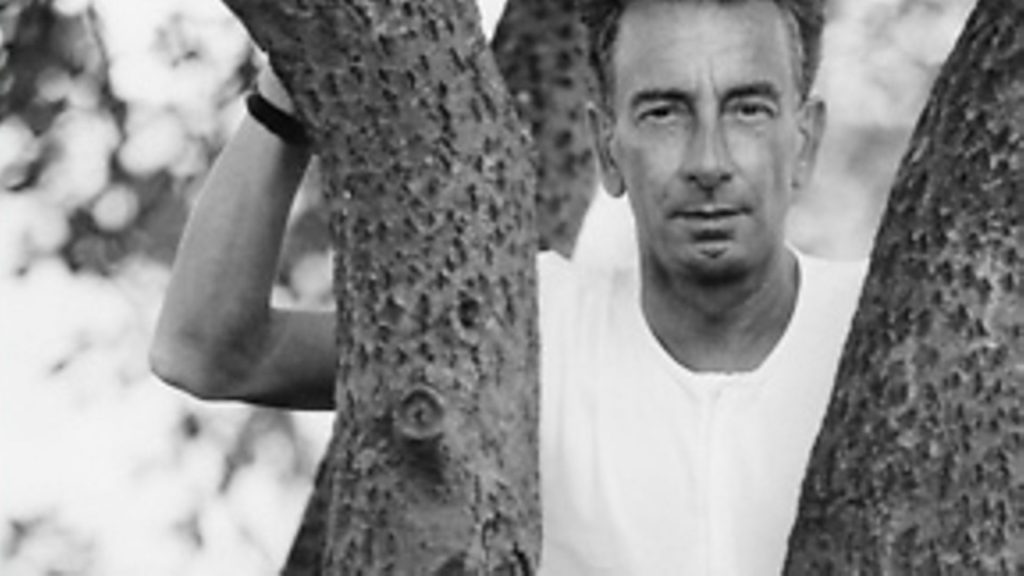
After retiring as a ref in 1996, he became a prominent activist for LGBT rights and appeared on TV shows including the Dutch version of Have I Got News For You. Blankenstein then withdrew from public view to battle a rare kidney disease that would ultimately be the cause of his death in 2006, aged just 57.
His legacy lives on through the John Blankenstein Foundation, which is now one of the Holland’s leading LGBT groups and its chair is John’s sister, Karin.
“We don’t set out to bring footballers ‘out of the closet’, she says, “but to create an environment where it’s safe to be yourself, not just in professional football but also at grassroots level. We speak to all the top clubs and we also do workshops to talk with senior and junior players who can be as young as 13, to talk about how to be yourself in football.”
Karin has taken some inspiration from the UK. Our professional clubs support the rainbow laces and armband campaign to raise awareness and acceptance of the LGBT community. Many Premier League and Football League clubs, as well as the England national team, have an official LGBT supporters group.
Only one club in Holland, ADO Den Haag, has an equivalent group.
“People assume well it’s Holland, we’ve always been a progressive society. But I saw the captains (in England) playing with the rainbow armband and I thought ‘oh my gosh, why not us?’” So, the foundation created Holland’s own rainbow armband day.
But her brother’s story is also a reminder that, in many ways, the men’s game hasn’t moved on since the 1990s.
In the current Euros tournament, 628 players plus 18 refs have been involved. One could say it is a statistical anomaly that they are all apparently heterosexual. But then consider there is not one full-time professional player in Europe that is openly gay.
Compare this to the women’s game, where dozens of the world top pros are openly lesbian and are simply judged on their ability as footballers.
The media would be far more supportive of a gay or bi player than they might have been in Blankenstein’s time, and there would be a queue of brands wanting to associate themselves with that individual.
But Blankenstein acknowledged that as a ref he was simply representing himself not a team or the thousands of supporters in a stadium or the millions who follow a club around the world. According to Stonewall, seven in 10 football fans who have attended a match say they have heard or witnessed homophobia.
Plus, he never had to contend with social media. Recently, a ludicrous rumour about a Premier League player swept through social media on a tidal wave of transphobia. Many tweets observed that you can see why players are reluctant to come out.
The lack of a prominent figure within the game like Blankenstein probably doesn’t help either. It would take a certain strength of character for one player to effectively become the face of gay footballers across Europe.
“We joked that the past year would be the right time to come out because there are no fans in the ground,” says Karin. “But I can imagine you don’t want the pressure.
“Footballers also have a short career. There will be clubs and countries that would not accept a gay footballer.”
Indeed, next year’s World Cup is being held in Qatar where same-sex relationships are illegal. And although have been strong anti-racism messages at the Euros, perhaps UEFA needs to be clearer about how it intends to address all forms of discrimination.
Last year, cross-party MPs expressed dismay at the ‘slow progress in kicking out homophobia from football’ as part of a wider report examining the cultural impact of Covid 19 on sport in the UK. Having seen teams walk off during matches when a black player has been subjected to abuse from either the crowd or an opponent, Blankenstein would love to see something similar happen if there was homophobic chanting.
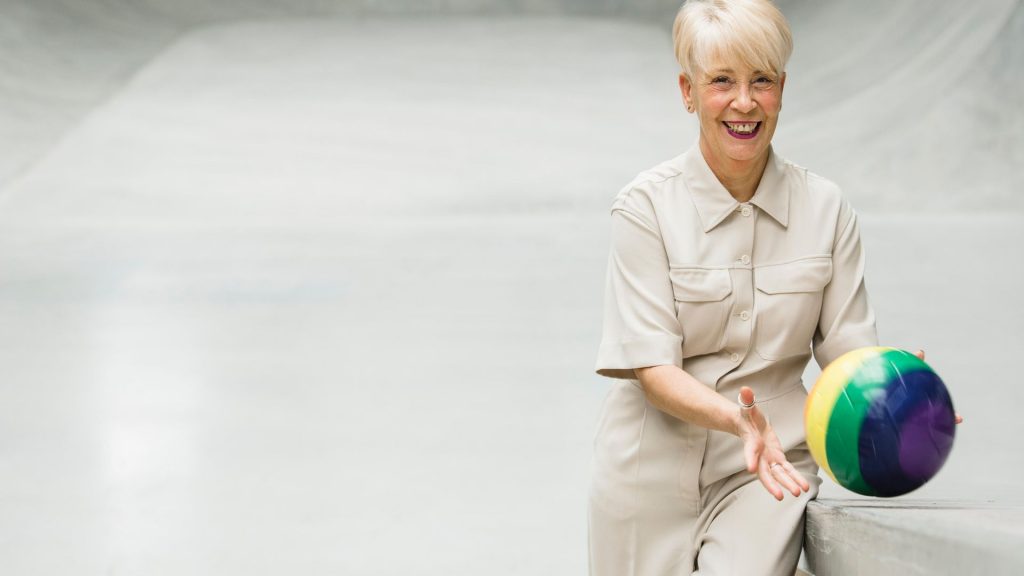
She says, “We now talk more openly about racism. Two years ago, one of the players from (Dutch side) Excelsior stopped playing and started to cry when he walked off. Everybody saw that, and his teammates also left the pitch.
“When somebody shouts something homophobic you should also stop and walk. And I think that’s the only solution to tackle it within a stadium.
“But the difference is when it’s racism then it’s visible. It’s about the colour of somebody’s skin. With homophobia, when it’s not directed at a certain individual will players take that stand?”
She believes that much like her brother, the pathway to a professional coming out is more likely to be laid out at the start of their career. The next generation of players will grow up in an environment that is different to the current crop of players, where more of their peers are likely to identify themselves as LGBT.
“Also, we are now seeing more young people with same-sex parents,” she adds. “John was 17 when he told our mother and father. He was just starting out in football and that’s the best way to do it. You don’t worry about somebody finding out your secret.
“You are who you are. Ultimately, it’s just so sad if you cannot be yourself.”
What do you think? Have your say on this and more by emailing letters@theneweuropean.co.uk
Warning: Illegal string offset 'link_id' in /mnt/storage/stage/www/wp-includes/bookmark.php on line 357
Notice: Trying to get property 'link_id' of non-object in /mnt/storage/stage/www/wp-includes/bookmark.php on line 37






